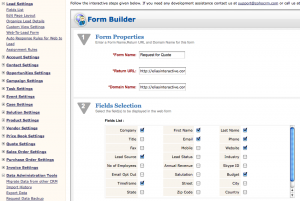We’re proud to announce our most recent Magento store launch for keramikoskitchen.com! They manufacture and sell high quality ceramic knives and needed an online store to introduce a new sales channel that compliments their home shows. Keramikos hired us to design and develop their new custom Magento store. Check it out and let us know what you think!


 This weekend we switched to a new CRM system here at Elias. I evaluated several different options including
This weekend we switched to a new CRM system here at Elias. I evaluated several different options including 